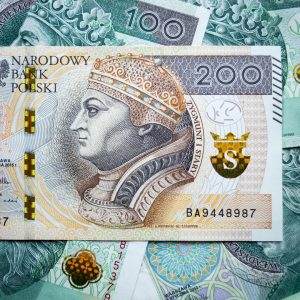Comparing Forex Broker Fees: Finding the Best Deal Online
When it comes to trading forex online, finding the right broker is essential. As a trader, you want to ensure that you are getting the best deal possible, which includes comparing and understanding the various fees charged by forex brokers. In this article, we will delve into the different types of fees you may encounter when trading forex and provide you with tips on how to find the best deal online.
Spread Fees:
One of the primary ways that forex brokers make money is through the spread. The spread is the difference between the bid and ask price of a currency pair. It represents the broker’s fee for executing your trades. Generally, brokers offer two types of spreads: fixed and variable.
Fixed spreads remain constant regardless of market conditions. This means that the spread will not change during periods of high volatility. On the other hand, variable spreads fluctuate depending on market conditions. They tend to be tighter during normal trading hours but can widen significantly during news releases or other market-moving events.
When comparing forex broker fees, it is important to consider the spread offered. Lower spreads are generally preferable as they reduce your trading costs. However, it is important to note that some brokers with tight spreads may charge other fees, such as commissions or overnight fees.
Commissions:
While many brokers make money solely through spreads, others charge a commission on each trade. These brokers are known as ECN (Electronic Communication Network) brokers. ECN brokers provide direct access to the interbank forex market, allowing for tighter spreads but charging a commission on each trade.
Commissions can be a significant factor when comparing forex broker fees, especially for high-volume traders. Some brokers may offer lower spreads but compensate by charging higher commissions. It is essential to consider both the spread and commission structure to determine the overall cost of trading with a particular broker.
Overnight Fees:
Forex trading involves holding positions overnight, which may incur overnight fees. These fees, also known as swap or rollover fees, are charged for keeping positions open beyond a certain time (usually around 5:00 PM EST). The fee is calculated based on the interest rate differential between the two currencies in the pair being traded.
Overnight fees can be a significant cost for traders who hold positions for extended periods, especially for those trading on margin. When comparing forex broker fees, it is essential to consider the overnight fee structure, as some brokers may offer more favorable rates than others.
Other Fees:
In addition to spread, commissions, and overnight fees, forex brokers may charge other fees that can impact your overall trading costs. These fees can include account maintenance fees, deposit and withdrawal fees, inactivity fees, and data feed fees.
Account maintenance fees are charged by some brokers for managing your trading account. Deposit and withdrawal fees are incurred when funding or withdrawing funds from your account. Inactivity fees are charged when you do not trade for a specific period. Data feed fees are charged for accessing real-time market data.
When comparing forex broker fees, it is crucial to consider these additional fees as they can significantly impact your trading costs, especially if you are an active trader or require specific services.
Tips for Finding the Best Deal Online:
Now that we have discussed the various fees to consider when comparing forex brokers, here are some tips to help you find the best deal online:
1. Research and Compare: Take the time to research and compare different brokers’ fee structures. Consider the spreads, commissions, overnight fees, and other charges mentioned earlier. Look for brokers that offer competitive fees without compromising on service and reliability.
2. Account Type: Different brokers offer various account types, each with its fee structure. Consider your trading style and volume to determine which account type suits you best. Some brokers may offer discounted fees for higher-volume traders or specific account types tailored to certain trading strategies.
3. Demo Account: Before committing real funds, test the broker’s trading platform and services using a demo account. This will allow you to evaluate the broker’s execution speed, customer support, and overall trading experience without risking your money. Pay attention to any hidden fees or limitations that may not be apparent initially.
4. Customer Support: Quality customer support is crucial when trading forex. Consider the broker’s responsiveness and availability of support channels such as phone, email, or live chat. Prompt and knowledgeable customer support can be invaluable when dealing with any issues or concerns related to your trades or fees.
5. Regulatory Compliance: Ensure that the broker is regulated by a reputable financial authority. Regulatory bodies provide oversight and protection to traders. Trading with a regulated broker reduces the risk of fraud or unfair practices that may impact your fees or trading experience.
Conclusion:
When it comes to trading forex, finding the best deal online involves comparing and understanding the various fees charged by forex brokers. Consider the spread, commissions, overnight fees, and other charges to determine the overall cost of trading with a particular broker. Research and compare multiple brokers, test their services using a demo account, and prioritize quality customer support and regulatory compliance. By following these tips, you can find a broker that offers competitive fees while providing a reliable and satisfactory trading experience.






